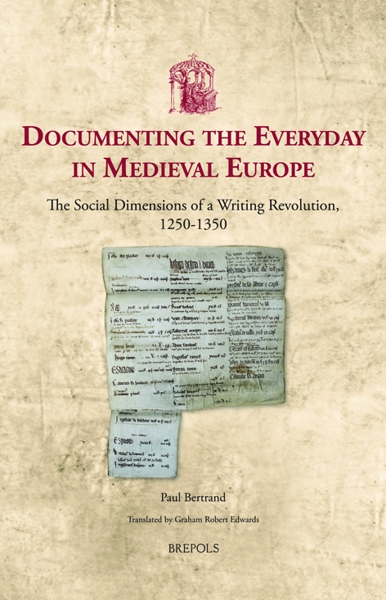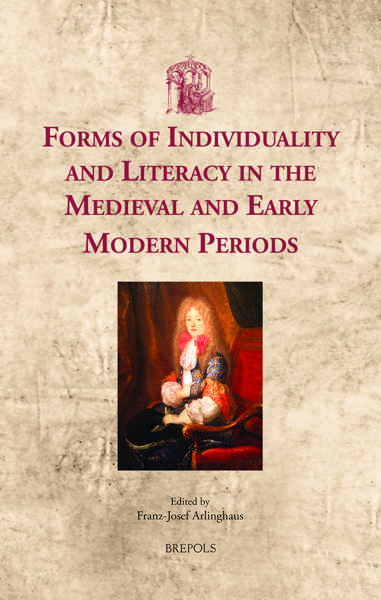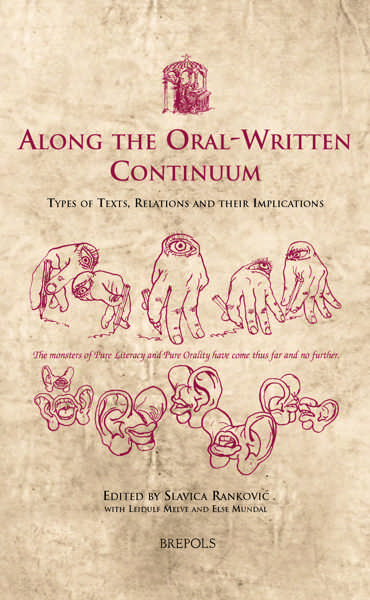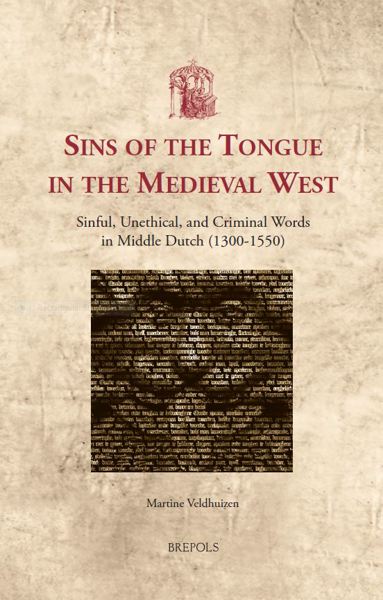
A Latin-Polish Sermon Collection and the Emergence of Vernacularisation
Dorota Masłej
- Pages: xiv + 283 p.
- Size:156 x 234 mm
- Illustrations:40 col., 5 tables b/w.
- Language(s):English
- Publication Year:2025
- € 80,00 EXCL. VAT RETAIL PRICE
- ISBN: 978-2-503-61927-9
- Hardback
- Available
- ISBN: 978-2-503-61932-3
- E-book
- Available
This analysis of the Old Polish ‘Augustinian Sermons’ highlights the emergence of a vernacular text as well as on the preconditions and dynamics of vernacularisation.
"Masłej's book is a solid and highly informative contribution to medieval studies, offering a particularly illuminating analysis of this intriguing monument of bilingual preaching literature. Beyond its importance for the study of Old Polish and Polish textual history, it sheds valuable light on the unique linguistic environment of medieval Europe, where Latin and vernaculars coexisted in dynamic interplay. Scholars of historical linguistics, sermon studies, and multilingual manuscript culture will find here a model of rigorous, interdisciplinary scholarship." (Beata Spieralska-Kasprzyk, in Sehepunkte, 26/2, 2026 [online])
Dorota Masłej is a linguist and historian of the Polish language, working as an assistant professor at Adam Mickiewicz University, Poznań (Poland). Her research interests concern Polish-Latin bilingualism and the process of the vernacularisation of written culture in late medieval Central Europe (especially in Poland). She is the author of several articles and two books on these subjects: Modlitwa Pańska w polskim średniowieczu. Znad staropolskich rękopisów [The Lord’s Prayer in the Polish Middle Ages. An analysis of Old Polish Manuscripts] (2016); Jak rodził się średniowieczny tekst. Tak zwane Kazania augustiańskie w perspektywie historycznojęzykowej [How a Medieval Text was Born. The so-called Augustinian Sermons from the Perspective of Historical Linguistics] (2020).
This monograph offers an analysis of the so-called Kazania augustiańskie (‘The Augustinian sermons’), a unique manuscript which represents a very early phase in the vernacularisation of medieval Polish textual culture, when vernacular or bilingual texts started to manifest their independent development. The relationships between Latin and the Polish vernacular in this text, surviving in a contemporary manuscript, sheds light on the ways in which Latin determined the development of written Polish in the textual genre of the sermon. The detailed and multifaceted analysis of the linguistic features of the Kazania augustiańskie contributes to the continuing discussion in medieval studies on the emergence of the earliest texts in the vernacular languages and on the preconditions and dynamics of vernacularisation.
At a first glance this book may appear to be the tale of a single manuscript, told solely from the point of view of a historian of language. However, it also explores both the birth of a particular medieval text and, more generally, the growing ability to compose vernacular texts. This capacity, which developed over the medieval period, was based on Latin models; over the centuries it contributed to vernacular texts becoming a fundamental component of European culture.
1. A General Context: The Production of Vernacular Texts in Medieval Europe
2. A Local Context: The Production of Vernacular Texts in Medieval Poland
3. The so-called "Augustinian Sermons" in their Manuscript Setting
4. The Bilingual Nature of the Augustinian Sermons
5. The Relationship between the Augustinian Sermons and the Main Text in the Manuscript
6. The Augustinian Sermons as a Kind of Text
7. The Author of the Augustinian Sermons: His Abilities and Modus Operandi
Conclusion
Bibliography
Index




